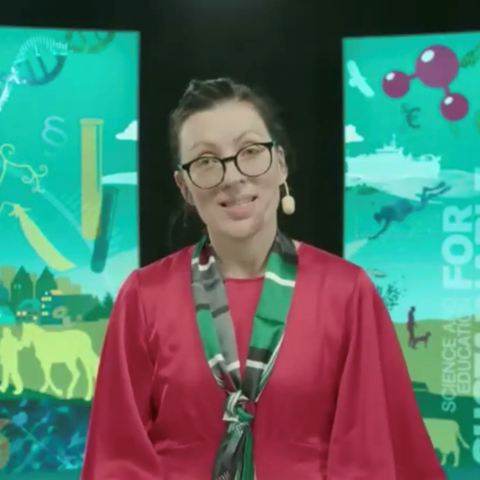Contact
Department of Urban and Rural Development, Division of Rural Development

On 14 February, the Ministry of Rural Affairs, in collaboration with the Food and Agriculture Organization of the United Nations (FAO), the Swedish International Development Cooperation Agency (Sida), and the Swedish International Agricultural Network Initiative (Siani), organised a global webinar to present the key findings of the FAO report "The Status of Women in Agrifood-systems" and discuss how voluntary guidelines for gender equality and the empowerment of women and girls in the context of secure food supply and nutrition can drive change.
The year 2023 was important in the work to strengthen gender equality and empower women and girls in the context of food security and nutrition.
FAO published a landmark report, The Status of Women in Agrifood Systems, providing the latest data, lessons learned and recommendations about how to do more, and better.
The Committee on world food security adopted the Voluntary Guidelines on Gender Equality and Women’s and Girl’s Empowerment in the Context of Food Security and Nutrition, for the first time bringing a full policy product on gender equality under the umbrella of foremost inclusive international and intergovernmental platform for all stakeholders to work together to ensure food security and nutrition for all.
At the same time, the work on gender equality is experiencing some strong pushback and, as the FAO report shows, very little progress has been made in the past decade on important topics like women’s access to assets, resources and services necessary for agrifood systems.
How can this negative trend be reversed? What can we do to address the structural barriers to gender equality and women’s empowerment, and how can tools such as the voluntary guidelines be helpful? These were some of the questions discussed during the event on 14 february.
The well-attended event was inaugurated by State Secretary Dan Ericsson, who highlighted the government's firm support for gender equality initiatives. Dr. Lauren Phillips from the FAO then elaborated on the FAO report, noting that progress has been mixed since the last report but highlighted positive signs, particularly a policy-level awareness of the need to address gender equality to ensure food security.
Following this, Tanja Gren, Finland's Permanent Representative to UN agencies in Rome, and Rebecka Ramstedt from the Swedish embassy in Rome, discussed the voluntary guidelines and the intensive efforts behind their adoption despite the challenging consensus-building process. Geovanny Enriquez, National Program Coordinator at the FAO, presented their work on gender transformative approaches in Ecuador, while Elisabeth Simelton, a senior agriculture specialist at Sida, provided insights into their work on gender equality, including funding support for the implementation of the voluntary guidelines.
The closing remarks of the webinar were delivered by Ambassador Nosipho Nausca-Jean Jezile of South Africa, the newly appointed Chairperson of the Committee on World Food Security (CFS). Dr. Johanna Bergman-Lodin, a feminist geography researcher at the Division of Rural Development at the Department of Urban and Rural Development at SLU, moderated the event.
This is the first time a full policy product on gender equality has been brought under the umbrella of an inclusive international and intergovernmental platform. The webinar provided insightful facts and figures, taking us behind the scenes of the negotiations. It highlighted the challenges and presented the solutions that finally got the world community to agree.
The webinar can be viewed retrospectively at: The path to gender equality in the context of food security: transforming policy to action
Parts of this article were based on an article in Swedish on the Swedish FAO website.